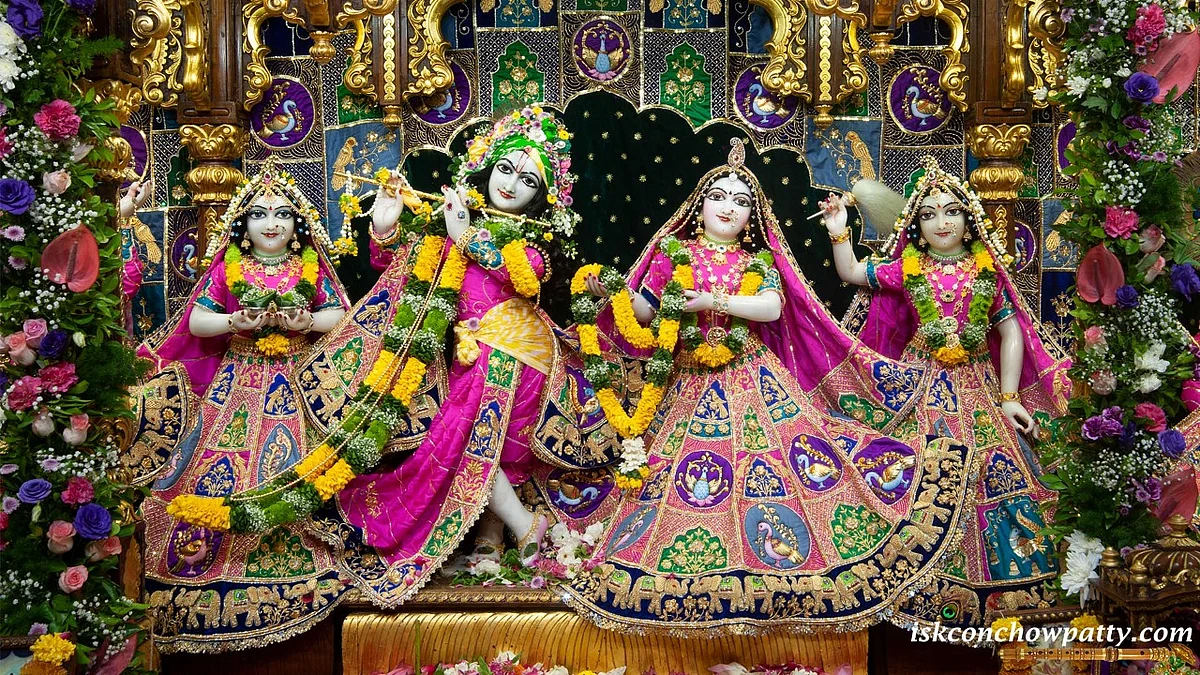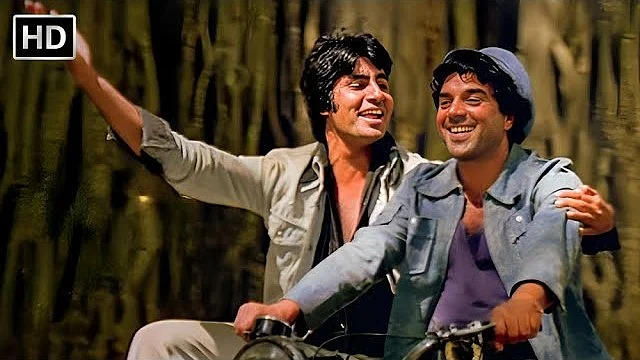What a political drama was spun on January 12, on the 158th birth anniversary of Swami Vivekananda, when all parties in the electoral fray in West Bengal staged a drama to get their share of the limelight.
It is indeed sad to see how some politicians brand Swamiji only as a religious monk, notwithstanding the magnitude of his spirituality, his scientific approach and idea of an inclusive world.
Today, at a time when the birth anniversary celebrations of Swamiji by our leaders has been reduced to a tamasha for political mileage, it is imperative that the universality of this monk must be described in totality.
Hindutva icon?
We need to ask ourselves and introspect, whether it is fair to appropriate him as a Hindutva icon even when he vouched for 'Sarva Dharma Sama Bhava'.
Unfortunately, most of these netas who use Rabindranath Tagore and Swamiji for their political needs know very little about Vivekananda’s world view and nationalism.
Swami Vivekananda’s nationalism had its roots in spiritualism, patriotism and religion. He stressed on selfless service and a sense of human dignity for national integration. He gave the ideas of strength and fearlessness to the people of India. He worked tirelessly to eradicate the caste system, the purdah system, untouchability and child marriage, among other social evils. He considered education the panacea for all social and religious problems. He also advocated internationalism in the same spirit. At the Parliament of the World's Religions at Chicago in 1893, he gave the concept of universal brotherhood to the entire world.
World view
Here, it is necessary to understand what Vivekananda’s life and world view said about Indian nationalism. His Chicago lectures marked the start of a mission that would interpret India’s millennial tradition in order to reform it. He later spent about two years in New York and set up the first Vedanta Society in 1894. He travelled extensively across Europe and engaged Indologists like Max Mueller and Paul Deussen. He even debated with scientists of eminence like Nicola Tesla before he embarked on his reformist mission for his motherland.
A key element of his message, based on the experiments of his spiritual guru Sri Ramakrishna Paramahansa, was that all religions “lead to the same goal”. Paramahansa is unique in the chapters of mysticism, as one whose spiritual practices reflect the belief that the ideas of a personal god and that of an impersonal god, as well as spiritual practices in Islam and Christianity lead to the same realisation.
In Chicago, Vivekananda stressed upon three important and novel facets of Hindu life/religion. He first said that Indian tradition believed “not only in toleration” but in acceptance of “all religions as true”. Second, he stressed that Hinduism was incomplete sans Buddhism, and vice versa.
Finally, at the last meeting he proclaimed… “If anybody dreams of the exclusive survival of his own religion and the destruction of others, I pity him from the bottom of my heart, and point out to him that upon the banner of every religion will soon be written, in spite of resistance: ‘help and not fight’; ‘assimilation and not destruction’, and ‘harmony and peace and not dissension.’
Scientific modernisation
When he returned from the West, he was accompanied by a large number of American and European followers. These women and men stood behind his dream project of establishing the Ramakrishna Mission in 1897.
Vivekananda stressed that India needed to trade spirituality for the West’s material and modern culture and backed India’s scientific modernisation with full force.
He backed Jagdish Chandra Bose’s scientific endeavours. Not many may know that Vivekananda’s American disciple Sara Bull helped Bose patent his discoveries in the US. He also invited an Irish teacher, Margaret Noble, whom he later rechristened as ‘Sister Nivedita’, to help uplift the condition of women in India. When she inaugurated a girls’ school in Calcutta, Vivekananda also requested his friends to send their daughters to school.
He inspired Jamsetji Tata to establish the Indian Institute of Science and the Tata Iron and Steel Company. India needed secular monasteries to produce scientific and technological development for the upliftment of her material condition, for which his ideals provided a source of inspiration.
True nationalist
He had a huge influence on leaders of the modern era -- like Mahatma Gandhi, Jawaharlal Nehru and Subhas Chandra Bose. He brought the term ‘Daridra Narayan’ into parlance to imply that ‘service to the poor is service to god’, years before Gandhiji addressed the socially oppressed as ‘Harijan’ (children of god). Gandhiji had said that his outlook changed and love for his motherland grew a thousand-fold after studying Vivekananda.
Swami Vivekananda could easily be hailed as the father of modern Indian nationalism. He was a true nationalist. Swamiji would say, “An empty stomach is of no good for religion.” He considered one’s first duty to be selfless service to the motherland.
He believed that the main cause of India’s downfall was the exploitation of the poor. By the upliftment of the poor and the downtrodden alone could one can establish nationalism, he staunchly believed. He called upon Indians, especially the youth to ‘arise, awake and stop not till the goal is reached.’ He believed that it was very important to instil a feeling of nationalism among Indian people. Through lectures and writings, Vivekananda imparted a sense of pride and cultural confidence to the Indian people.
People of different cultures and ideologies met and assimilated in India. Despite being subjected to several invasions, India has remained firm and united and because of this great heritage. It has produced some great personalities, who have taught the world a lesson of unity, humanity, brotherhood and other higher ideals. Vivekananda is one of them. He created a national consciousness amongst Indians. He showcased the relevance of the richness of Indian culture in modern times and was the symbol of national unity.
Believer of unity in variety
He believed in the theory that 'unity in variety is the plan of creation'. He understood religious viewpoints as attempts to realise infinity. He would say, "I am a Hindu. I am sitting in my own well and thinking that the whole world is my little well. The Christian sits in his little well and thinks that is the whole world." This is the type of thinking that poses a barrier in nationalism. He said, "If one religion be true then all the others must be true. ...I studied all religions -- Mohammedan, Buddhist, Christian and others, but I find all the same teachings taught to me by my religion."
His master taught him that service to man is service to God. So, Vivekananda said, “The best form of worship is to see God in the poor, the downtrodden, the sick and the ignorant and to serve them."
Thus, it would be appropriate to promote Vivekananda as a proponent of Hinduism or of the millennial traditions that have survived many invasions and endured to teach the world both “toleration and universal acceptance”. Should Hindu nationalism take his name and forget his fiery modern spirit that rediscovered and reformed India’s past? Shouldn’t India’s secular nationalism also acknowledge its deeply spiritual roots in the beliefs of pioneers like Swamiji, the reformer?
The writer is Senior Associate Editor, Free Press, Indore










